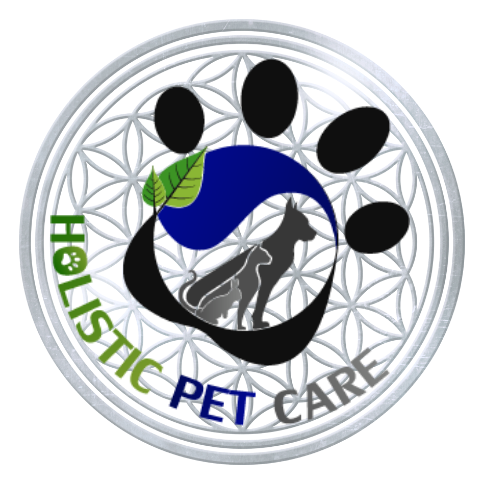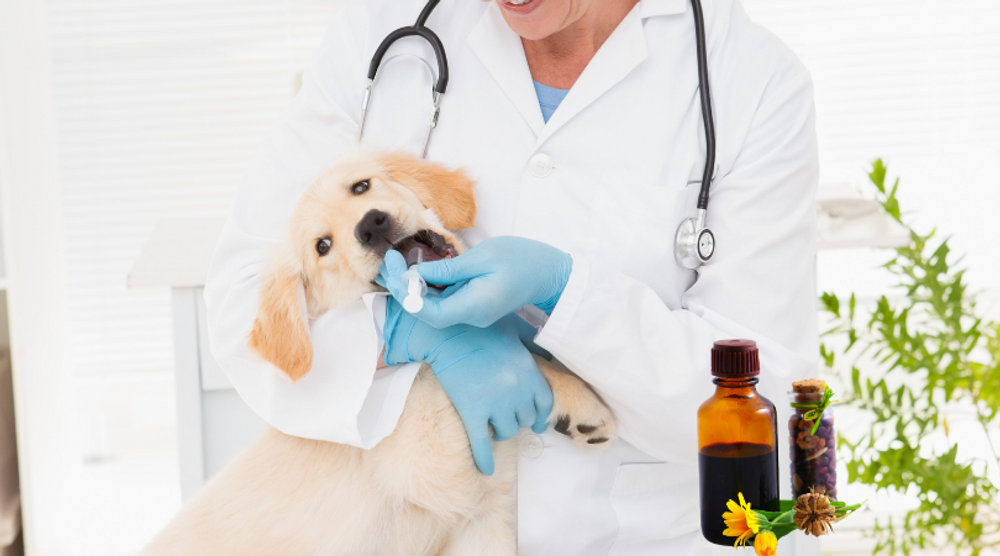Herbs For Dogs
Posted by Rhonda Jewel on Dec 03, 2020
I have always had a garden. Herbs have been a hobby I have had a deep affinity for and have grown in my gardens over the years. One farm we had I grew a 50 ft x 50 ft herb garden filled with every herbal plant I could find out of every herbal catalog and herb supplier in the USA and Canada. It was fabulous! Healing with herbs has always been a fascination and passion of mine. Beside their wonderful aroma and varied scents, many of those lovely herbs contain so many superb healing properties that can be very beneficial for your pooches.
This big herb garden I designed and planted was in 1994 when I first started following the principles of natural rearing for my dogs in the book by Juliette de Bairacli Levy "The Complete Herbal Handbook for the Dog and Cat". It was first published over 50 years ago and I truly consider her to be the "grandmother" of natural rearing for dogs.
WHAT ADDING HERBS CAN OFFER TO DOGS
Herbs provide their amazing medicinal properties when needed, such as adding fiber as does slippery elm as a mucilage. Certain herbs, like milk thistle and dandelion can to help to detox after vaccine. Other herbs can boost the immune system, heal wounds, treat lungs, cleansing blood and so on.
Herbs can be very nourishing to dogs and cats on the innermost levels to help boost and provide deep nourishment to the brain, bones, muscles, skin, coat, and organs. Although herbs are certainly not a replacement for the necessary species appropriate diet or raw meat, they can offer wonderful supplementation to provide added support when needed. Some herbs can indeed be used as both food and medicine as they have the components of both in some cases.
Consider adding the following herbs to your first aid kit to have on hand when needed. Also, some of the nutritive herbs can be added to your dog’s raw food diet as an occasional supplement as needed. Such as nettles, alfalfa or kelp for instance. Many of these herbs work best in their tincture form which you can purchase in many health food stores or online. If you can get the glycerin version of the tincture, which is easier to get dogs to take. However, others should be in powered form, an oil or salve. With some herbs fresh is best.
So with that being said I will put an initial at the end of each herb below which indicates what forms it is best used in : P for powdered - T for tincture- F for fresh- O for oil – S for salve
Here is a list of some of my favorite herbs used in herbal animal medicine:
Plantain: First aid herb for stings and cuts (F) (S)
Comfrey Root: Heals wounds, anti-inflammatory, soothes, lubricates (S)
St. John’s Wort: Nerve pain, wounds, bites, rashes and stings (combine with comfrey root) (O) (S)
Slippery Elm: Digestive tract and diarrhea soothes, heals and protects intestines and intestinal lining (P)
Alfalfa: a nutritive herb containing high amounts of protein. It is a rich source of vitamins and trace minerals, calcium, magnesium, potassium, beta-carotene, vitamins A, B-12, C, D, E and K. (P)
Kelp: for balancing glandular function. Contains iodine for stimulating the thyroid gland; promotes shiny, healthy skin and coat; aids in dry skin conditions, skin allergies and alopecia (hair loss) (P)
Milk Thistle: Liver detoxification, vaccine detox (T) (P)
Calendula: skin problems, irritations and wound healing. Anti-viral (O) (S)
Mallow: IBD (inflammatory bowel disease), colitis, skin conditions (T) (P)
Stinging Nettle: allergy prevention and kidney disease. Highly nutritive tonic herb rich in vitamins and minerals. Has a broad range of actions and benefits (P)
Dandelion: Liver and gall bladder aid. Improves digestion, removes toxins. Diuretic. (T)
Burdock: Blood cleansing, liver tonic, nutritive, skin (T) (P)
Juniper Berry: Diabetes, cardiovascular disease (T)
Uva Ursi: Kidney and bladder conditions (T)
Echinacea: Immune stimulant (T)
Yarrow: Skin healer, styptic (stops bleeding), digestive aid and flea powder, anti-viral (P)
Elecampane: Lung problems (T)
Mullein: Lungs, skin and ears, feline rhinitis, canine kennel cough (T)
Coltsfoot: Lungs, asthma, rhinitis, kennel cough (T)
Valerian: Calmative, nerves, digestion (T)
Skullcap: Gentle sedative, nervine, anticonvulsant (T)
Wild Chamomile: Mild sedative and digestive. It helps to expel gas and calm nerves (T) (P)
Licorice: Natural steroid and adrenal aid. Soothing. Good for use as an overall anti-inflammatory, anti-viral (T)
Eyebright: anti-inflammatory for use in eyes (P) (F)
Raspberry Leaf: Uterine tonic (F) (P) (T)
Blackberry root: Bacterial diarrhea (P) (T)

